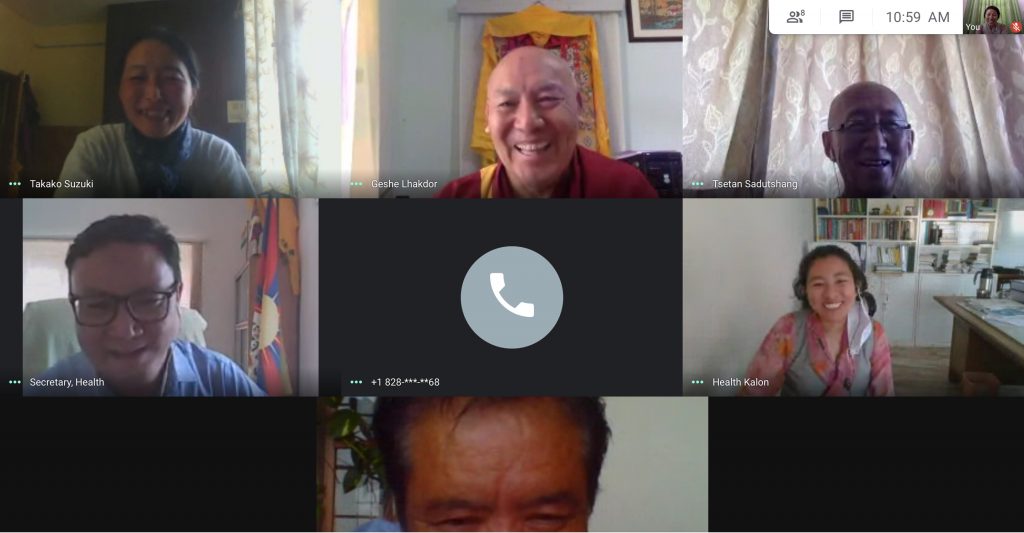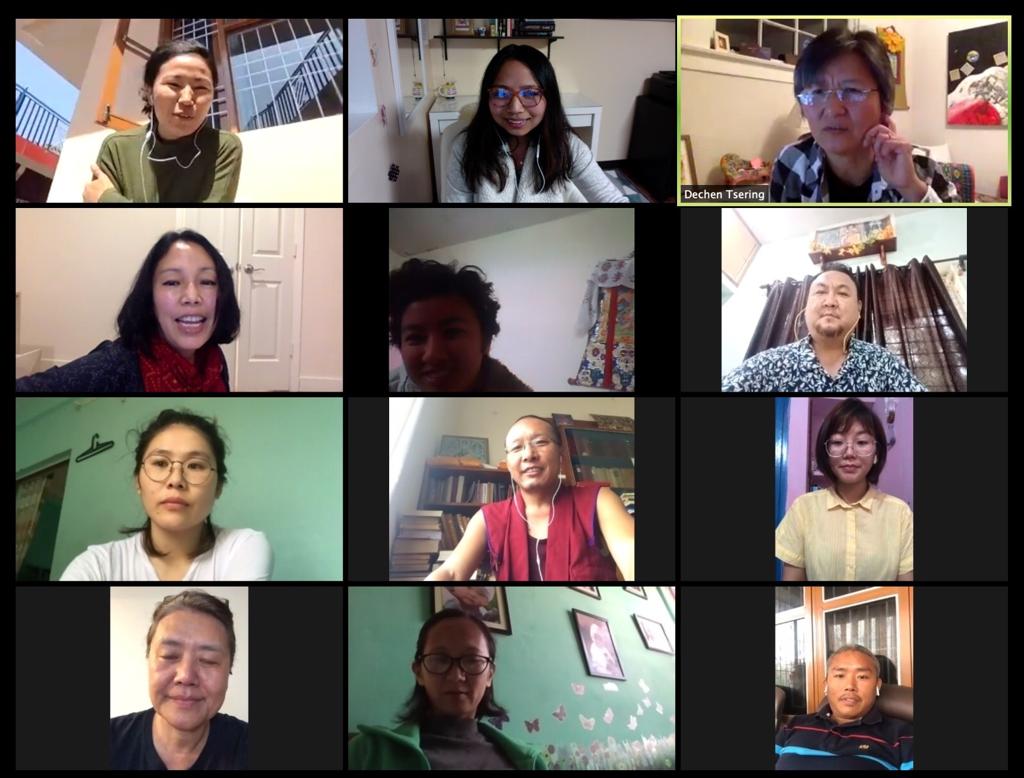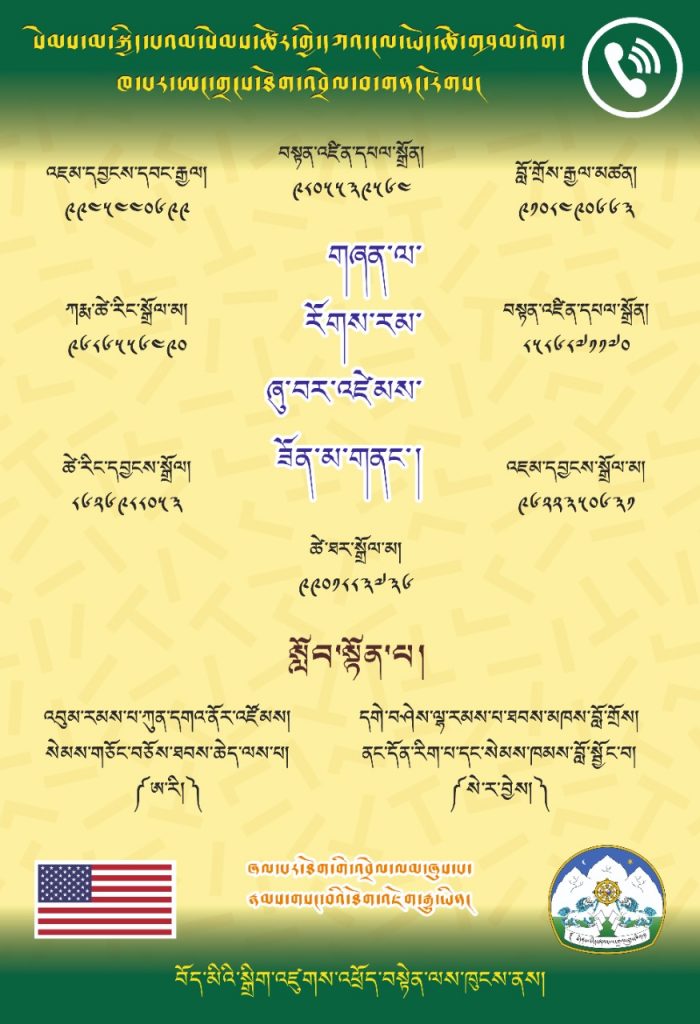The Mental Health program was introduced in 1991 in response to a growing need for better care of torture survivors and mental health patients. Moving beyond the conventional religious and medical treatment, the program strives to provide a holistic support system for mental health patients. This program has been making efforts towards mental health promotion and prevention programs in Tibetan settlements in India. Under this program, various activities are being carried out.
1. Medical Assistance
This program has been providing 50% medical reimbursement assistance to Tibetan people in settlements in India who have a poor financial background and full medical reimbursement for the destitute. There are approximately 200 mental health beneficiaries under this program as of now. The most common mental disorders are depression, bipolar, and Schizophrenia and other psychotic disorders. In the recent past, more efforts are being made to encourage people to seek psychotherapeutic interventions in addition to psychiatric medications.
2. Prevalence Survey
A first-ever mental health prevalence survey is currently underway. This survey is being carried out in collaboration with Sangath, a mental health NGO based in Goa. The main objective of this survey is to understand the current mental health situation in Tibetan communities in India so that DoHe can accordingly plan various interventions and awareness programs. The survey is being conducted by trained mental health nurses in the settlement. Those nurses were trained on research methodology and data collection specifically for this survey in Sangath, Goa in November 2019.
3. Mental Health Core Committee (MHCC)
The mental healthcare plan includes a holistic approach with inter-sectoral collaboration with the traditional Tibetan medicine approach and Tibetan Buddhist perspective along with the Western psychological perspective. For that, an advisory board, MHCC was formed to provide guidance and feedback on any of the future mental health plans of this desk. The members of the MHCC are Geshe Lhakdor, Dr. Tsetan Dorji Sadutshang, Dr. Tsewang Tamdin, Dr. Carol Weingarten, Dr. Takako Suzuki, Health Kalon, and Health Secretary. The first MHCC meeting was virtually held in September 2020.
4. Training Programs
In the past, the mental health desk has trained school counselors, traditional Tibetan doctors, settlement nurses in collaboration with NIMHANS and VIMHANS. The mental health nurses are currently being trained virtually in collaboration with the Tibetan Mental Health and the Himalayan COVID-19 Taskforce (HC19TF). The purpose of the training is to provide some basic education on common mental disorders in the Tibetan community and on basic counselling skills to the settlement nurses. With the holistic mental healthcare plan in mind, there is a plan to train the Tibetan Amchi las and Tibetan monks and nuns in the settlements on basic counseling skills, identification of early signs of distress, and referral procedures. Moreover, the nurses and some selected members of the community will also be trained so that they can play the role of lay counselors in the community. All of the above training may ensure early intervention and prevention from more severe symptoms.
5. Awareness Programs
The mental health dealing staff have been visiting various settlements and gave talks on mental health and mental disorders in the past. The awareness program is also being conducted indirectly through settlement nurses. In July 2020, in collaboration with the Health Education desk of the DoHe, we produced an awareness film on mental health titled “Who is Crazy”. The movie can be found at DoHe YouTube channel HealthCTA and social media pages.
6. COVID-19
During the COVID-19 crisis, the mental health desk has initiated various activities depending on the need of the hour and the community. A first-ever helpline service was initiated for any psychological support and queries. The helpline is still an ongoing activity. The helpline counselors are trained school counselors who have been trained by our helpline advisors Geshe Thabkhe Lodroe, Dr. Kunga Norzom, Dr. Sophia Banu, Dr. Paden Phintso, and Dechen Tsering from HC19TF.
Apart from that Tibetan people who are currently suffering from COVID-19 are being followed up for any psychological help.
Mental health is a rising concern globally and our community is no different from it. It is a concern for people of all walks of life and everyone should work towards promoting mental wellbeing in oneself, one’s family, and the society at large.
For more information, kindly contact at [email protected].


